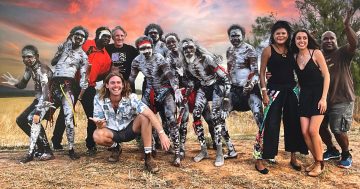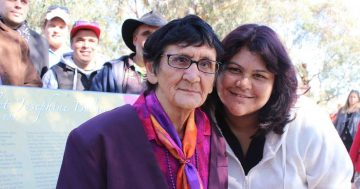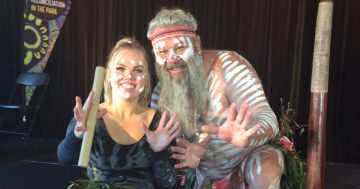
Reconciliation in the Park included music, conversations and art-making activities including Making Peas/ce, creating Sturt’s desert peas in Aboriginal colours. Photos: Genevieve Jacobs.
Despite one of the coldest May days on record in Canberra for decades, the sun broke through the clouds and thousands turned out for Reconciliation in the Park. The free event used music, food, art and workshops to kick-start conversations about Reconciliation.
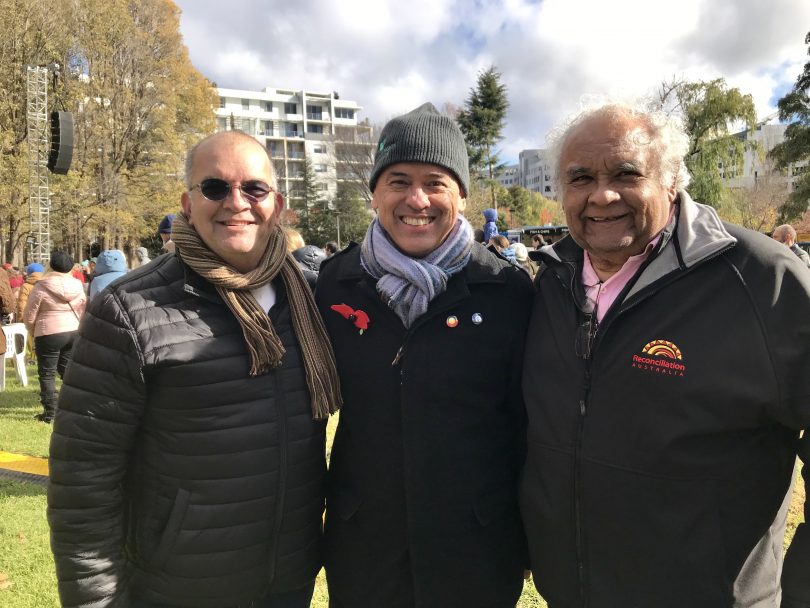
Professor Peter Radoll from the University of Canberra, Reconciliation Australia co-chair Dr Chris Bourke and Professor Tom Calma, co-chair of Reconciliation Australia.
Reconciliation Australia chair, Professor Tom Calma called the ACT “a national leader in wanting to recognise reconciliation by having a public holiday. It’s a great opportunity for people to reflect on what it means to them.
“You can see people messing around enjoying themselves, kids getting involved – it bodes well for the future of Reconciliation. And the indigenous community are here too – it’s great to see the elders opening up their hearts and talking to people,” Professor Calma said.

Singer Johnny Huckle entertains some of the children at Reconciliation in the Park.
It was the second year for the event, coinciding with the ACT’s public holiday to mark Reconciliation Day. The ACT is the only jurisdiction to mark the day, which begins National Reconciliation Week nationally.
National Reconciliation Week is always held from 27 May to 3 June. These dates commemorate two significant milestones in the reconciliation journey: the successful 1967 referendum, and the High Court Mabo decision.

Chief Minister Andrew Barr with Ngunnawal elder, Aunty Violet Sheridan, who gave the Welcome to Country.
The 2019 National Reconciliation Week theme is ‘Grounded in Truth, Walk Together with Courage’ and many of the events on the day were centred around having conversations with stallholders including the United Ngunnawal Elders Council, Australians for Native Title and Reconciliation, and activities that included language workshops, basket weaving and painting.
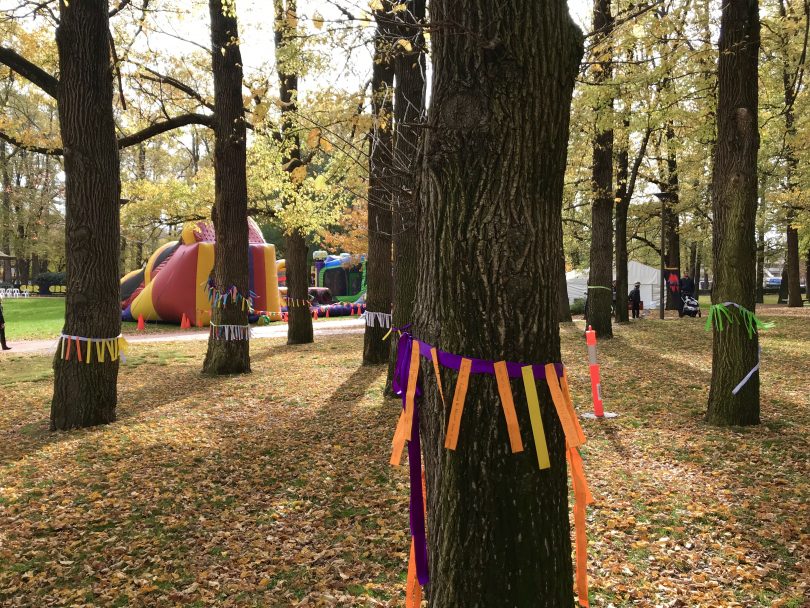
Trees in the Reconciliation Forest were hung with messages about Reconciliation as part of the King Brown Walking Trail through Glebe Park.
Visitors were also invited to mark where they had been born or lived on an indigenous map of Australia, without state borders or boundaries but delineated by language and tribal groups.

Visitors were asked to mark their country with a sticker on an indigenous Australia map.
Lead performers the Merindas electrified the main stage and brought in audience members for their infectious mix of tribal beats and electronic pop and dance music. They were joined across several stages by performers who included Lyneham local Grace Obst.

Lyneham musician Grace Obst was one of the performers at Reconciliation in the Park.
“This is just one of a number of events held across Canberra,” Professor Calma said. “I think we should be very proud of what we’ve been able to achieve. The music has been super interactive with parents and kids, all the stalls were well patronised, it just felt like a really good day.”













